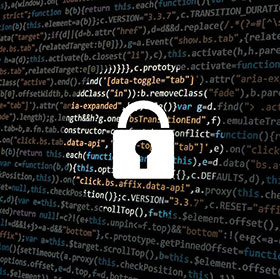

Tax season in South Africa opened on 1 July – and to many it’s an opportunity to file tax returns for a welcome refund. However, to online scammers it’s a window of opportunity. Sensitive financial data is everywhere: taxes filed online, taxpayers accessing banking and investment information, and personal financial records sitting on hard drives.

The opportunity is irresistible to online thieves, so users who let their guard down during the rush to get their taxes done are susceptible to scam artists, says Carey van Vlaanderen, CEO at ESET Southern Africa.
Identity thieves often send fake emails purporting to be from SARS to trick victims into disclosing personal information. Your financial identity is yours and yours alone. The following are some steps you can take to keep the scammers at bay during financial crime season – and all year round.
1. Sweep your computer
Before you work on your taxes, work with financial data on your computer, or visit banking or financial sites, update your antivirus/antimalware software and run a scan. The little bit of extra time it takes is well worth it when you consider the consequences of keylogger or other malware grabbing your passwords, account numbers, or other personal data that could be used to steal your financial identity.
2. Use only a secure browser
Every bit of personal information is potentially useful to a crook. A banking site, shopping site, or any other site that trades in personal financial data should support secure, encrypted browsing. Any site that doesn’t simply isn’t worth the risk. For extra safety, look for security software that includes Banking and Payment Protection, which automatically opens a new, secure browser for you when you’re making financial transactions online.
3. Don’t give out any personal financial information
If you get an email from a bank, shopping site, or any other source that asks you to verify your password or enter personal information, don’t click on the link. Type the site’s URL into the address bar yourself and log in or use the phone to contact them. Deceptive emails and phony websites are easy for crooks to fake. Security software that protects against these phishing schemes add an extra layer of security should you ever let your guard down.
4. Log out of SARS e-filing or banking sessions
Leaving a session open while you do other work on your computer, take a phone call, or step away from your computer is an open invitation for crooks, and they don’t have to have control of your computer to hijack your session. Always close your browser completely after you’ve visited any site that requires a log-in or deals with your personal information.
5. Don’t do it from a hot spot
A public Wi-Fi hot spot is wide open for thieves who can steal information or plant malware on your computer. Never use them when you’re sending or working with your financial or other personal information. Be especially careful with your tax return – complete with your identity number, it’s a gold mine for identity thieves. If you use public hotspots at all, for any purpose, install security software that includes a firewall.
6. Consider encrypting the information that you store or send
Encryption software is simple to use and protects your sensitive personal information from prying eyes. Recipients of your emails can open them normally. If you store tax or financial records on your computer, store them in a folder with an innocuous or misleading name, and use a file encryption program to provide additional security in case your machine is compromised.
7. Protect mobile devices too
Your mobile device might contain financial information, emails with account updates from your bank, or links that allow a thief to access your bank account. If you haven’t done so already, lock your phone with a password, and invest in security software that protects it from malware and safeguards your information in case of loss or theft.
8. Update regularly
It’s standard advice, but it bears repeating: update regularly. Spyware and malware take advantage of vulnerabilities in software to gain a foothold, install, and spread silently. New vulnerabilities are discovered all the time, and your mission is to keep up with the patches before the criminals can exploit them. Make sure your operating system and all web browsers you use are up to date, and pay special attention to browser plug-ins.
By following these tips and combining a little extra vigilance with the right security software, you can protect your computing devices, your financial identity and livelihood.
For more information contact ESET-SA, +27 21 659 2000, [email protected], www.eset.co.za

© Technews Publishing (Pty) Ltd. | All Rights Reserved.